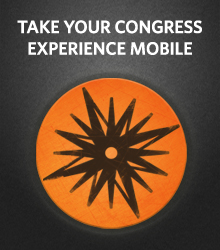Shared responsibility for climate change
Trevor Pritchard, Freelancer
If you’re like most Canadians, you probably had a sympathetic response when you heard about the devastating Indian Ocean tsunami of 2004 or last year’s earthquake in Haiti.
Perhaps you even reached for your chequebook and dialed up the Red Cross, eager to help out any way you could. Well, if that was your reaction, don’t be so ready to pat yourself on the back - at least not when Melany Banks is in the room.
Banks is a philosophy instructor at Wilfrid Laurier University and a proponent of collective responsibility theory - the idea that groups of people, not just individuals, can be held morally accountable for harm in the world.
If collective responsibility theory - and the questions it raises about individuality and free will - brings to mind the soul-searching that’s defined post-World War Two Germany, you’re not alone. It certainly did for me, and as Banks points out, the theory has often been applied to work out the proper moral response to genocide.
But she wants to take it in an interesting new direction - specifically, to explore what degree humanity is collectively at fault when natural disasters occur.
“It’s such an intriguing problem to address,” Banks says. She readily admits the pollution generated by driving a car to work everyday isn’t as morally reprehensible as killing your neighbour in the midst of a genocide. But the underlying principle - that people acting collectively share some of the blame when those acts result in harmful outcomes like climate disasters - holds true.
That’s why Banks has always been bothered by people who applaud themselves when they, for instance, hear about “climate refugees” - people displaced by climate-induced natural disasters - and donate to charity. Those donations shouldn’t be seen as “extra stuff,” she argues, but rather as an acknowledgment that we’ve contributed to global problems with our high-emissions lifestyles.
And that shift in mindset will be particularly important if policies like carbon taxes or cap-and-trade systems are going to be widely accepted, she says: “I would hope in a way that it [the adoption of collective responsibility theory] would provide politicians the ability to make the changes we need to make.”
Banks will be delivering her paper “Collective Responsibility and Climate Change,” with commentary from University of Western Ontario Ph.D. candidate Julia Watt, at 4:30 p.m. on May 31. She expects she’ll be discussing one particularly alarming case of climate-induced destruction: the rising water levels around the ocean nation of The Maldives, which could be completely underwater within 100 years.
Photo courtesy of us7thfleet from Flickr.













